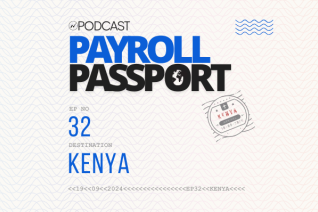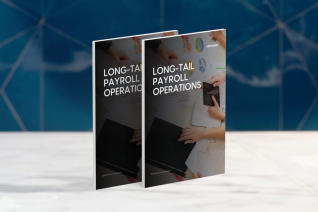Establish your presence globally with Neeyamo as we help you go beyond borders to manage your international payroll and hire new talent in Kenya.
Overview
Kenya is a country located in the continent of Eastern Africa bordered by Ethiopia, South Sudan, Uganda, Tanzania and Somalia. The industries in the country include agriculture, manufacturing, and service sector.
Do your organization’s expansion plans require you to hire employees in Kenya? Do you lack a physical entity in the country – a key requisite to hire local talent? Neeyamo assists organizations worldwide with onboarding and managing employees in Kenya - processing payroll, managing local compliance requirements, benefits, and more.
Tools And Instances
Facts And Stats
Capital
Nairobi
Currency
Kenyan Shilling (KES)
Official Language
Swahili, English
Fiscal Year
1 January to 31 December
Date Format
DD/MM/YYYY
Country Calling Code
+ 254
Other Languages
Kikuyu, Luhya
Time Zone
East Africa Time Zone (UTC + 03:00)
Global Payroll
Overview
Handling payroll for a widespread workforce can pose a significant challenge for any organization, and the added complication of compliance can make things worse. If companies spend more time processing payroll, it directly impacts day-to-day operations and their overall productivity.
Over the years, Neeyamo has observed these complexities and strived to provide a global payroll solution through a single technology platform - Neeyamo Payroll.
Payroll Taxes
Payroll tax is the percentage amount retained from an employee's salary and paid to the government to invest in the general population's welfare. These are statutory in nature and are levied from both the employer and employee. Additional statutory contributions are made by employers towards aiding both short-term and long-term benefits for their employees.
Employee Taxes
Contribution (2024)
- National Social Security Fund (NSSF): KES 200
- National Hospital Insurance Fund (NHIF) :KES 1,700
National Hospital Insurance Fund (NHIF) (Effective July 1, 2024, employers will implement a new contribution rate of 2.75% per month, with a minimum contribution of KES 300 per month.)
Personal Income Tax (July 2023)
| Income | Percentage |
| Up to KES 288,000 | 10% |
| KES 288,00 up to KES 388,000 | 25% |
| More than KES 388,000 | 30% |
Employer Taxes
- National Social Security Fund (NSSF): KES 200
- National Industrial Training Levy (NITA): 50 KES per employee
Payroll Cycle
Overview
Undoubtedly, payroll is a critical process for any organization. Pay cycle in Kenya refers to the period for which an organization pays its employees, and this can vary depending on the pay frequency that the organization chooses to adopt.
Frequency
The payroll frequency in Kenya is followed as per the following categories:
Casual employees- Wages are paid either at the end of the workday or at the end of the week.
Employees with an indefinite term employment contract- Wages are paid monthly and must be paid by the last working day of the month.
13th Month Cycle
There is no 13th month pay in Kenya.
Global Work
Overview
An Employer of Record (EOR) service provider helps you eliminate the hassle of handling complexities while onboarding a new employee in an international location. They help bridge the gap that otherwise mandates organizations to have a local registered entity and a local bank account, prior to making a job offer to an international hire.
An EOR service provider acts as a legal employer, facilitates salary payments, and manages other statutory requirements such as health insurance, payroll taxes, and employee benefits ensuring compliance with local tax laws and regulations.
This allows organizations to focus on collaborating with the employee in Kenya for operational tasks, with the knowledge that they have a cost-effective solution support their global payroll & HR requirements, as they continue their global expansion.
HR Mandates and Practices
Minimum Wage
Effective November 1, 2024, Kenya has implemented a 6% increase in the minimum wage across various job roles and industry sectors.
The wage adjustments apply to a range of workers:
- 1. Unskilled employees: Minimum wage of Sh7,997 per month (Sh335 per day).
- 2. Stockmen and herdsmen: Minimum wage of Sh9,235 per month (Sh391 per day).
3. Skilled workers:
- House servants/cooks: Sh9,129 per month (Sh347 per day).
- Farm foremen: Sh14,427 per month (Sh609 per day).
- Farm clerks: Sh14,427 per month (Sh609 per day).
- Other roles (e.g., farm artisans, tractor drivers, combine harvest drivers, lorry drivers: Wages between Sh9,000 to Sh11,000 per month.
These revised rates apply across a range of sectors, providing workers in agriculture,manufacturing, and related industries with structured wage adjustments.
Overtime
Under these statutory regulations overtime should be payable at the rates of one and one-half time hourly rate on weekdays, and at the rate of twice the basic hourly rate on Sundays and public holidays.
There are different Regulations of wage orders in force, covering different sectors of the economy.
Data Retention Policy
- Tax records must generally be kept for a minimum of five years.
- Tax records include employees' names, Personal Identification Numbers (PINs), gross income, nature of payments, and amount of tax withheld.
- Social tax documents generally should be kept for five years.
Increase in NSSFC contribution percentage:
With effect from February 15, 2023, all the employers who have one or more employees must register with NSSF, keep updated records of payments, register all employees with NSSF and make mandatory contributions to NSSF.
An increase in the deduction from the employee's pay from Sh. 200.00 to Sh. 1,080.00 per month, and the same goes for the employer.
Hiring and Onboarding Requirements
Hiring
The law insinuates promotion of equal opportunities among employees through eliminating discrimination in employment policies and practices. The Employment Act prohibits discrimination in respect of recruitment.
However, the employment laws also provide that it is not discriminatory to:
- take measures for affirmative action that are consistent with the promotion of equality or the elimination of discrimination in the workplace
- distinguish, exclude or give preference to any person based on an inherent requirement of a job;
- employ a citizen under the national employment policy, or restrict access to certain categories of employment where it is necessary for the interest of state security.
Onboarding
The required documents include:
- The national ID card
- The NHIF card
- The NSSF card
- The KRA PIN certificate
- Bank details proof (ATM Card/bank statement copy)
Other documents for those who have other deductions other than statutory,
- For those with loans, the executed offer letter from the bank / or the loan statement
- For those who make Pension contributions, evidence of the same e.g. copy of the contract
- For those with insurance policies, evidence of the same e.g. copy of the contract.
- For foreign employees (not local employees, by whichever title), additionally (to the aforementioned), there needs to be:
- A work permit,
- Alien ID
(These documents show that the employee is documented, validates their stay, and ability to work in the country).
And any other documents the employer may deem necessary.
Probation
The probationary period is set at a maximum of six months in Kenya.
This period may, however, be further extended for a period of not more than six months. The employee’s consent is required for such an extension.
Leave
National Holidays
Public Holiday
There are 13 public holidays. If a holiday falls on a Sunday, then the proceeding Monday is commonly observed as a holiday.
- Jan. 1: New Year's Day
- Apr. 7: Good Friday
- Apr. 10: Easter Monday
- Apr. 23: Eid al-Fitr
- May 1: Labor Day
- June 1: Madaraka Day
- June 29: Eid al-Adha
- Oct 10: Huduma Day
- Oct. 20: Mashujaa Day
- Dec. 12: Jamhuri (Independence) Day
- Dec. 25: Christmas Day
- Dec. 26: Boxing Day
Sick Leave
For every 12 – month period, an employee is entitled to a total of 14 days of sick leave.
100% of the regular pay rate is paid for the first 7 days and 50% for the remaining 7 days. To be eligible for this leave, the employee must have completed at least 2 months of employment. Also, the employee must be able to provide a medical certificate.
Maternity Leave
Women are entitled to 91 days of maternity leave paid at 100% of the regular pay rate. To be eligible, the woman must give at least 7 days’ notice to their employer when the leave is intended to be taken and must be able to provide a medical certificate.
Paternity Leave
Fathers are entitled to 2 weeks of paid paternity leave.
Other Leave
Parents who are preparing to adopt a child are eligible for one month of pre-adoptive leave with full pay. Parents however will be required to provide 14 days' notice to their employer and show the relevant adoption papers as proof.
Termination
Notice period
Where the contract is to pay wages or salaries periodically at intervals of or exceeding one month, a contract terminable by either party at the end of the period of twenty-eight days next following the given of notice in writing.
This sub-section does not apply in cases when the contract itself, or a given collective agreement, requires a longer period of notice. If an employer does not give notice, he or she should pay to the employee an amount equal to his or her wages for that period.
Practice in the Industrial Court has produced some rules, thereby modifying the strict regulations of the Act. The period of advance notice for employees who have worked for five years or less has generally been adjusted to a minimum of one month. When the employee has worked for more than five years, however, it is at least two months. And the notice must be in writing.
Severance pay
The individual employee is entitled to two basic rights, severance pay, and payment in lieu of notice. The rates of payment may depend on the agreement, but many ranges from fifteen to thirty days basic wage or salary for every completed year of service. Following the jurisprudence of the Industrial Court, it has been accepted that an employer whose position improves and wishes to employ after a financial crisis, must give priority to the employees formerly declared redundant.
Visa
Overview
All foreign workers must obtain the proper visas and entry permits in order to work legally in Kenya. Visas are required for most foreign nationals, including U.S. nationals, to enter Kenya.
Work permits are divided into 7 classifications (D, I, B, A, G, K, and M).
- Class D allows employees to work for a specific employer for a specific position, and
- Class G permits are given to traders, investors, and consultants.
- Class I, B, A, and K permits are given to prospectors, investors in agriculture, refugees, and those receiving income from foreign (non-Kenyan) sources.
Permits are issued by the Immigration Department and generally are valid for two years. Applicants must file Form 3 and submit a letter from employers and pay a processing fee in order to apply.
Employee Background Checks
Legal and Background Checks
Employers can carry out background checks on employees and applicants. There is no law prescribing how these should be carried out. However, employers should be careful not to infringe on employees’ right to privacy, which is protected under the Constitution and the Data Protection Act as well as other sector-specific laws such as the Health Act.
It does not make any difference if the employer conducts its own checks or hires a third party to do the checks. However, while conducting background checks, the employer or third party must adhere to the principles of data protection set out in the Data Protection Act.
Last updated on December 24, 2024
If you have any queries or suggestions, reach out to us at irene.jones@neeyamo.com
Have Queries? Get In Touch With Us
Get in touch with one of our experts and take a quick demo of our services










